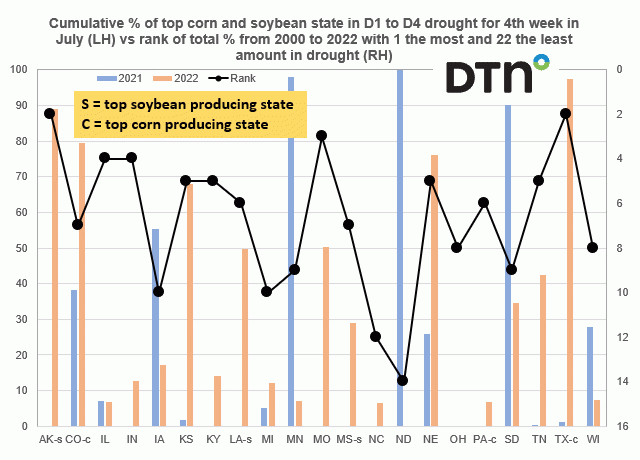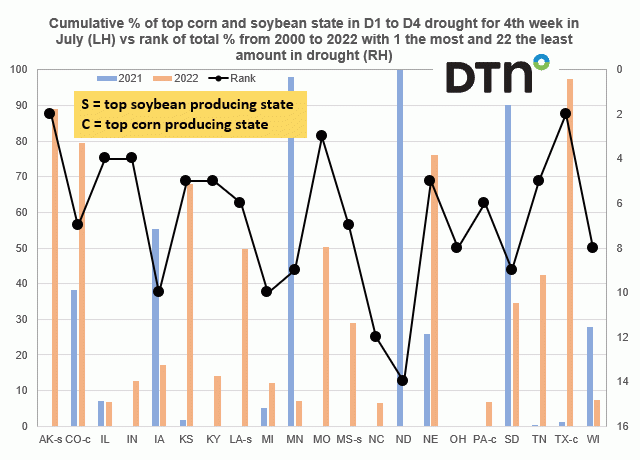Fundamentally Speaking
Southern States Having Some of Their Worst Drought Since 2000
After starting the month off in negative fashion, based on decent weather right after the Independence Day weekend and increased optimism about the resumption of Ukrainian exports, corn and soybeans finished off July much stronger as a good part of the Midwest is bracing for the hottest temperatures of the season and a continued lack of rainfall in key producing areas as the month of August begins.
With regard to this latter point, have seen drought expand from much of the western half of the U.S. to now large parts of OK, southeast KS, AK, southern MO and into southern MN, central IL and now most of Iowa.
This graphic shows from the U.S. Drought Monitor statistics, the combined percent of the top 21 corn and soybean growing states in some form of drought ranging from D1 to D4 as of the fourth week of July on the left-and axis where D1 is moderate drought, D2 is severe drought, D3 is extreme drought and D4 is exceptional drought.
P[L1] D[0x0] M[300x250] OOP[F] ADUNIT[] T[]
On the right-and axis is the rank of the total percent from 2000 to 2022 where 1 means that state has the higher percent of combined drought from the D1 to D4 category as of the fourth week in July from 2000 to 2022 and a 22 means the lowest percent.
This year is in many ways a contrast from last year as a fairly persistent high pressure ridge that has spent a fair bit of time in the center of the country has shunted a good amount of precipitation into the northern part of the country.
As a consequence, in a state like North Dakota there is no drought whatsoever vs 100% as of late July last year and similar situation in Minnesota where just 6.97% in combined D1 to D4 drought vs 97.88% last year and in South Dakota where just 34.53% in drought this year vs 90.1% a year ago.
On the other hand, southern states are really getting hit this year as Arkansas, which had no drought last year, has 89.08% of its area in some form of drought, the second highest percent since 2000.
In Texas where a year ago it had 1.15% in D1-D4 drought now has 97.4% in drought, also the second highest percent since 2000.
Note that even in states like Illinois and Indiana still have their fourth highest amount of combined drought as of late July since 2000 and it is only northern states that have lower combined percent vs. year ago levels.
(c) Copyright 2022 DTN, LLC. All rights reserved.






Comments
To comment, please Log In or Join our Community .